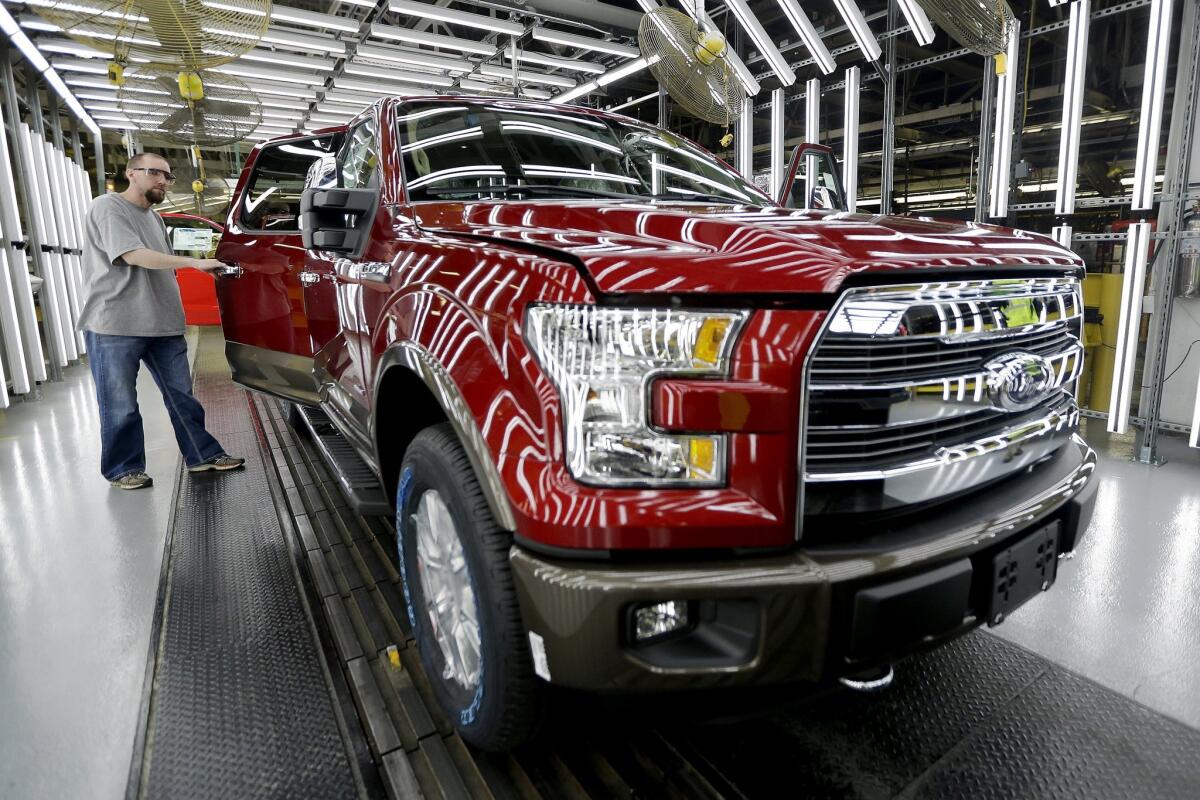U.S. auto sales roll on to best year in a decade

Ford’s U.S. sales jumped 5% in August as demand increased for its new F-150 pickup.
U.S. auto sales fell last month, but that isn’t stopping the industry from rolling on toward its best performance in more than a decade.
All major automakers released U.S. sales figures Tuesday. Total sales fell less than 1% to 1.58 million, but primarily because sales for a late-arriving Labor Day weekend will be included in September figures. Labor Day is typically a big sales weekend as dealers hold model year-end clearance sales. Last year the holiday was counted as part of August sales.
U.S. sales remain on pace to top 17 million this year for the first time since 2001.
Increasingly confident U.S. consumers are being lured to dealerships by low interest rates, low gas prices and enticing new small SUVs like the Jeep Renegade and Honda HR-V despite some angst in the stock market caused by fears of the economic slowdown in China.
For August, Ford reported a 5% gain as sales of its new F-150 gained steam, and Fiat Chrysler’s sales rose 2% thanks to strong demand for Jeep SUVs. Hyundai’s sales were up 3% thanks to its new Santa Fe SUV. General Motors’ U.S. sales were flat last month; it saw strong demand for the Chevrolet Silverado pickup but Cadillac sales declined.
Toyota’s U.S. sales fell 9% and Honda’s sales fell 7%, hurt by their car-heavy lineups in a market where buyers want SUVs. Volkswagen’s sales dropped 8%. Nissan’s sales were flat.
If the sales slowdown in China continues, U.S. buyers could eventually see more vehicles imported from China, as automakers try to maximize production at the plants they have built there. Automakers could also shift vehicles planned for China to the U.S., but that could be a challenge because vehicles popular there — like big sedans — aren’t necessarily popular here.
“We’re in a wait and see mode for China right now,” said Akshay Anand, a market analyst with Kelley Blue Book.
More to Read
Inside the business of entertainment
The Wide Shot brings you news, analysis and insights on everything from streaming wars to production — and what it all means for the future.
You may occasionally receive promotional content from the Los Angeles Times.










